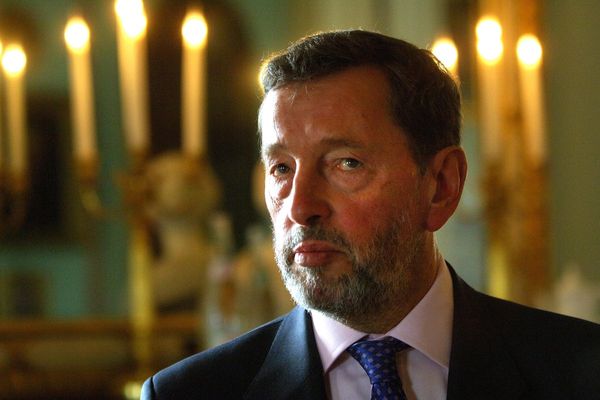
It’s the economy, stupid. Australian inflation is back up and the national mood is as sour as the Indigenous Voice to Parliament referendum campaign.
After peaking at 8% last year, the rate of consumer price inflation has been falling — but all too slowly. Consumers and the Reserve Bank (RBA) agree: inflation is still far too high. What’s more, progress has stalled. The rate of inflation was down to 4.9% in July, but in the latest data it has popped back up 5.2%.
As the next chart shows, the recent uptick is largely due to petrol inflation. Petrol prices soared over $2 a litre in August, leaving petrol 13% higher through the year.
The more prices rise, the less a dollar can buy. That’s stressful. Living standards are falling as the money we earn — and our savings — buy less. That’s even more true for households with a mortgage. Mortgages aren’t included in the consumer price index, and the cost of servicing one has soared.
Many households are under a pinch right now. No wonder the consumer confidence indices are showing extreme gloom.
It’s a bad time to run a referendum that asks Australians to think about other people, to be generous, to embrace the risk of change. I believe the Yes vote could win in this country at a different time. There’s a rump who’ll never vote for it, and an informed clique who would always vote for it, but then there’s a vast middle for whom Indigenous issues are far from everyday consideration. These people aren’t bad, just not in a giving mood.
At the start of 2023, polling showed about a quarter of Australians were undecided on how they would vote on the Voice. More recent polling shows many of those uncertain voters have broken for No. That coincides with rising interest rates and the collapse of consumer confidence in the chart above.
Economic stress drives political outcomes. The clearest recent example is Europe, where Germany, with low unemployment, elected the moderate Angela Merkel chancellor four times in a row, while Italy, where unemployment rose over 13%, has swung to the right-wing populist Giorgia Meloni.
When times are hard, people care about the in-group — they resist inclusivity. An invitation to widen the circle of people they care about is not likely to be popular.
When Anthony Albanese became prime minister in May 2022, and promised in his election night speech to progress reconciliation, interest rates were just 0.35%, and the argument that inflation was “transitory” seemed plausible. His intent was good, and with unemployment sitting at 3.5% and the lethality of COVID falling, it was reasonable to hope the door was opening on a period of optimism.
It wasn’t.
Albanese’s popularity is, of course, tied to inflation and the referendum. His approval ratings remain higher than Opposition Leader Peter Dutton’s but have fallen into the negative. If the referendum fails and inflation drags out to 2025, it is hard to see his approval lifting.
The RBA projects inflation to be above the target band until the end of 2025. That means the next federal election campaign will take place after three years of non-stop rapid price rises. The opposition will be able to claim that the government didn’t do enough to prevent them while pursuing a failed referendum.
Despite the economic environment, Dutton is unlikely to win that election. His personal unpopularity, combined with the fact Albanese is still in his first term, means a Labor victory in 2025 is most likely. But a healthy margin like 2022’s, where Labor could form a majority government, is not guaranteed. Labor has just 78 of the 151 seats in the House of Representatives, barely above half. Displeasure with major parties could well be a theme repeated in 2025.
The Greens are running hard on cost of living while Albanese pursues reconciliation. The Victorian Greens are demanding a price freeze on groceries. Barely a day goes by when Queensland Greens wunderkind Max Chandler-Mather isn’t in the news on housing.
Renters are struggling especially hard as rental markets get extremely tight. Rents are one of the few categories where inflation has not peaked and is still on the upswing. The Greens are making great political capital from this.
Greens Leader Adam Bandt said recently: “Renters are powerful and the Greens are the party of renters. We have won more money for housing for renters, and rent control is next. Renters have watched on in horror as Labor has refused to cap and freeze soaring rents. I say this to Labor: if you continue to ignore renters, your political pain has just begun.”
Bandt seems to have his finger on the pulse of Australia: we’re stuck on cost of living right now. His party may be the great beneficiary.
Is your heart as empty as your wallet? Let us know by writing to letters@crikey.com.au. Please include your full name to be considered for publication. We reserve the right to edit for length and clarity.







